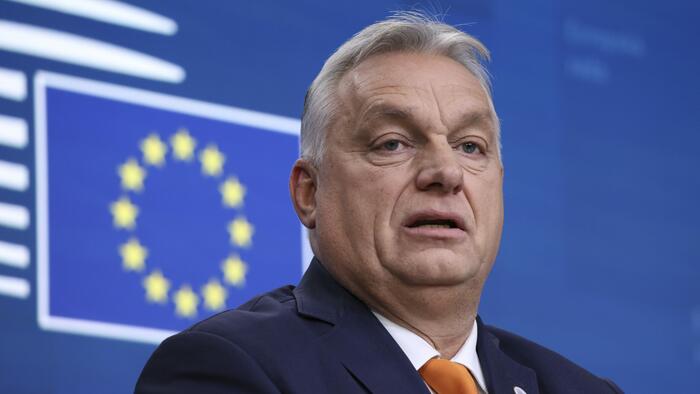


Submitted by Thomas Kolbe
Germany’s disastrous industrial and energy policies are driving companies abroad in droves. Interestingly, Hungary, a country frequently maligned in German media, has emerged as a preferred location for investors.
German mainstream media regularly take aim at Hungarian Prime Minister Viktor Orbán. His unflinching skepticism toward Brussels’ meddling, his uncompromising stance on migration, and his steadfast commitment to affordable Russian gas have brought him into open confrontation with both Berlin and the EU Commission. You can almost set your watch by it: when Brussels says A, Orbán responds with B. He holds up a mirror to the EU’s ideological strategies—and in doing so has become the biggest disruptor in Europe’s political consensus machinery.
Nearly every domestic policy decision he makes is under scrutiny, regularly attracting criticism from a press that typically pays little attention to Eastern European affairs. From controversial media laws to a fully understandable approach to NGOs—often used as tools to pressure governments through staged internal conflicts and mass demonstrations—the outrage in Germany is constant.
In this way, tiny Hungary, with its 9.6 million inhabitants—roughly half the size of North Rhine-Westphalia—shakes Europe’s political landscape significantly.
Propaganda vs. Reality
German media coverage has skillfully painted a distorted picture of Hungary: Orbán as a semi-dictatorial ruler, the country entirely subject to the will of his Fidesz party. In short: a place too risky to invest without sleepless nights. The reality, however, tells a very different story. Over the years, Hungary has become a true magnet for capital—including German money and multi-billion euro corporate investments.
Last year alone, Hungary recorded a surplus in foreign direct investment of around €10 billion. Remarkably, roughly 80% of this capital, which flows directly into new factories, jobs, and expansion of existing production capacities, comes from China, Japan, and South Korea.
This has quickly become another point of criticism for the von der Leyen Commission. Budapest is accused of serving as a gateway for Chinese influence in Europe. Yet the simple fact—that Hungary offers decisive advantages over other European countries—never seems to occur to Brussels.
Hungary as the Last Resort
For German politicians who enjoy moralizing about Hungary, it must sting: the German automotive industry sees its future in Hungary. The recently struggling ZF Friedrichshafen chose Hungary, as did Thyssenkrupp, Bosch, and Audi—active in Győr since 1993, with cumulative investments exceeding €8 billion. The facility alone created 12,000 jobs; Audi became the region’s largest employer, producing engines for global markets, with a strong focus on electric drives.
The same holds true for Mercedes in Kecskemét: €1 billion went into expanding e-mobility production, creating 4,400 new jobs.
BMW in Debrecen has invested €2 billion, created 1,000 jobs, and established an entire supplier value chain—the start of fully electric model production is planned for later this year.
The electric revolution that Germany tried to impose by bureaucratic decree is now unfolding in Hungary—thanks to far better conditions. A cynic might say: to get a snapshot of Germany’s innovative industrial landscape, one simply has to go to Hungary.
Hungary’s Advantages
Economically, it was only a matter of time before Hungary became a safe haven. With a flat corporate tax of just 9%, it leaves Germany, with its top tax rates—including trade tax, corporate tax, and solidarity surcharge (not yet fully abolished)—and rates approaching 30%, far behind.
Hungary also wins on energy costs: industrial electricity is around €0.103/kWh, far below German levels; households pay over 75% less.
Skilled labor is abundant, and education systems are aligned with the needs of modern industrial companies. Hungary pursues active subsidy and industrial policies to attract international companies. While understandable in a context of rising global competition, such intervention is, from a market perspective, unnecessary given Hungary’s natural advantages.
Massive Imbalances
The stark contrast between Brussels and Berlin’s regulatory obsession and Hungary’s business-friendly policies—which continue to leverage Russian gas despite sabotage attempts—will likely accelerate capital flight from Germany. Ideally, Hungary should hold a mirror up to German policymakers. Yet the government of Chancellor Friedrich Merz appears determined to maintain Brussels’ eco-socialist course despite Germany’s economic decline.
Hungary’s projected new debt of over 4% this year, with total debt at 73% of GDP, should be enough for Orbán to scale back subsidies. Neighboring states—and Europe overall—are already trapped in spiraling debt. With a government share of 47%, Hungary is approaching European averages—the state must also be trimmed here.
Foreign investment provides ample room to consolidate without falling into the debt trap that ensnares many European states.
Ultimately, those who recognize the signs of the times and structure their business environment smartly—free from ideological fanaticism and grotesque regulation—will bind companies locally. In Hungary’s case, companies are streaming in from across Europe and the world.
-
- *
About the author: Thomas Kolbe, a Germany graduate economist, has worked as a journalist and media producer for clients from various industries and business associations. As a publicist, he focuses on economic processes and observes geopolitical events from the perspective of the capital markets. His publications follow a philosophy that focuses on the individual and their right to self-determination.
